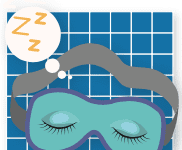Atrial fibrillation (AF) is the most common sustained heart arrhythmia among Americans: More than two million of us suffer from the condition, and its incidence is predicted to double over the next four decades. Ten percent of hospitalizations in the U.S. are due to AF, and without effective treatment people with the condition can face unpleasant symptoms and poor quality of life. While antiarrhythmic drugs are the frontline approach to treating AF, a minimally invasive procedure called catheter ablation can provide relief for people whose AF is resistant to drug treatment. "The technique has the advantage of ensuring that AF sufferers avoid the side effects that can accompany medications," says Walid Saliba, MD, staff cardiologist and Director of the Electrophysiology Lab at Cleveland Clinic.
To continue reading this article or issue you must be a paid subscriber.
Sign in





